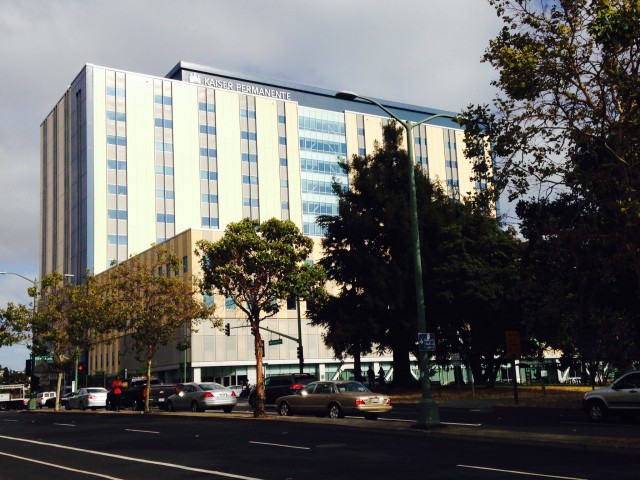Dr. Stephen Parodi, an infectious disease specialist and director of hospital operations for Kaiser Northern California, says any Kaiser patient that becomes ill from the virus would be transferred to one of these two hospitals.
“We have 21 hospitals in Northern California,” he says. “We feel it would be best to consolidate the care of these individuals, so that we can ensure that we’ve got highly skilled, competent, well-trained teams that can provide the care that’s required.”
Hospitals like San Francisco General are counting on the state to establish a similar system of designated hospitals for treating Ebola patients, suspected or actual. State public health officials say they are actively looking to identify a handful of California hospitals that can operate as official Ebola biocontainment facilities. That list is expected in the coming week or two.
“Everyone is eagerly waiting for a regional and statewide plan,” said Dr. Lisa Winston, who directs the inpatient service at SF General.
She says that SF General could not be one of the designated sites because it has too many infrastructure limitations -- it's preparing for a big move in December. Also, SF General is the only Level 1 trauma center in San Francisco, and that raises other concerns. If its top staff were diverted to take care of an Ebola patient, Winston says, that would stress the system’s ability to care for people needing emergency care from gun shot wounds, car accidents, or other traumas.
“We just want to make sure we’ve thought about that ahead of time,” Winston said. “We need to make sure we have the capability to appropriately manage all emergency situations.”
She says they are incorporating these concerns into training exercises it is running this week and next to prepare staff for a possible Ebola case. But ultimately Winston says that SF General plans to rely on other hospitals to take over care of any patient that becomes very ill with the virus.
Other concerns are shared by hospitals throughout the state, like what to do with the medical waste that would be produced when caring for an Ebola patient. The CDC recommends burning it.
“But in California, we don’t have that option,” says Jan Emerson-Shea of the California Hospital Association. She says the state effectively prohibits burning medical waste.
“Keep in mind too that one of the big challenges is the volume that might be generated from a patient with Ebola. Because everything that person comes into contact with, from bed linens, mattresses, paper cups, dishes, all of that has to be disposed of,” she says.
That waste can total eight 55-gallon drums each day. Emerson-Shea says hospitals are talking with various state officials now to determine what they would do with all that waste.
Public Information is Key
The broader issue public health officials are grappling with is how to keep the public calm. Health officials say that Ebola presents no public health risk to Californians at this time. Yet community groups in Sacramento, Los Angeles, and Alameda county are complaining that West African immigrants are facing stigma from people who fear they present some kind of risk for Ebola –- even immigrants who haven’t returned home in more than a decade.
“We’re starting to hear stories that people are looking at West Africans strangely or trying to stay away,” says Dr. Muntu Davis, public health officer for Alameda County. “People are not letting people from West Africa into their house.”
He says the county is working to develop an outreach campaign to educate the community about Ebola and reduce unfounded fears.
Transmission is actually quite difficult and only occurs if a person comes into contact with bodily fluids of another person who has symptoms of the virus: fever, vomiting, diarrhea. Someone who carries the virus but is not yet showing symptoms is not contagious, health officials stress.
Davis and other health officials say the best thing people can do to protect their health right now, is to get a flu shot.
“While it may not sound relevant, we have a coming flu season,” says Dr. Parodi of Kaiser, adding that more than 36,000 people die every year in the U.S. from influenza. “The most important thing you can do is get a flu shot. I can’t stress that enough.”
